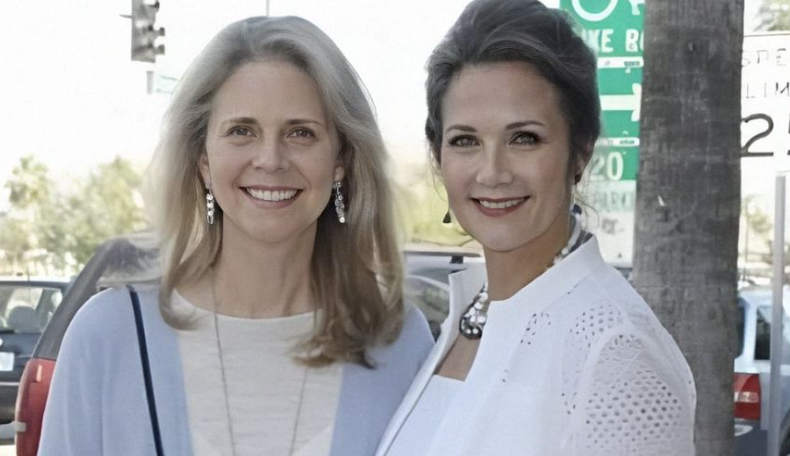
“Trailblazing Icons: How Lyndsay Wagner and Lynda Carter Revolutionized Female Superheroes on TV”
In the 1970s, television was undergoing a significant transformation, with more diverse and dynamic characters emerging on the screen. Among these groundbreaking figures were two iconic actresses who redefined what it meant to be a superhero. Lyndsay Wagner and Lynda Carter brought to life two of the most memorable and influential female superheroes in television history: Jaime Sommers and Wonder Woman. Their performances not only captivated audiences but also paved the way for future generations of female superheroes.
Lyndsay Wagner: The Bionic Woman
Lyndsay Wagner became a household name with her portrayal of Jaime Sommers in the television series “The Bionic Woman,” which aired from 1976 to 1978. The character of Jaime Sommers was a former tennis pro who, after a near-fatal skydiving accident, is rebuilt with bionic implants that give her superhuman strength, speed, and enhanced hearing. As the first female cyborg superhero, Jaime Sommers was a unique and compelling character who broke new ground in the portrayal of women in science fiction.
Wagner’s nuanced performance brought depth and humanity to Jaime Sommers, making her more than just a character with extraordinary abilities. She was relatable, compassionate, and determined, qualities that resonated with viewers. Her portrayal challenged traditional gender roles and offered a new vision of what women could be—strong, independent, and capable of overcoming any obstacle. Wagner’s work on “The Bionic Woman” earned her critical acclaim, including an Emmy Award in 1977, and solidified her status as a pop culture icon.
Lynda Carter: Wonder Woman
A year before “The Bionic Woman” hit the screens, Lynda Carter donned the iconic red, white, and blue costume to play Wonder Woman in the television series of the same name, which aired from 1975 to 1979. Carter’s portrayal of the Amazonian princess Diana Prince, who fights for justice and equality, made her an instant sensation and a role model for many young girls.
Wonder Woman was a character who embodied strength, grace, and a fierce sense of justice. Carter’s portrayal emphasized these qualities, making Wonder Woman not only a superhero but also a symbol of female empowerment. Her ability to balance strength and compassion resonated with audiences and helped redefine the image of women on television. Lynda Carter’s Wonder Woman was not just a defender against villains but also a beacon of hope and inspiration for those who sought justice and equality.
Legacy and Impact
Both Lyndsay Wagner and Lynda Carter left an indelible mark on television and pop culture. Their portrayals of Jaime Sommers and Wonder Woman challenged stereotypes and opened the door for more diverse and complex female characters in television and film. They demonstrated that female superheroes could be just as compelling, dynamic, and inspiring as their male counterparts.
The impact of Wagner and Carter’s performances extends beyond their respective series. They inspired a generation of viewers and paved the way for future female superheroes. Today, characters like Buffy the Vampire Slayer, Xena: Warrior Princess, and the women of the Marvel and DC cinematic universes owe a debt to the trailblazing work of Wagner and Carter.
Moreover, their roles as Jaime Sommers and Wonder Woman continue to inspire discussions about gender, representation, and empowerment in media. As society continues to evolve, the legacy of these trailblazing icons remains relevant, reminding us of the importance of strong, diverse, and empowered female characters in all forms of storytelling.
Conclusion
Lyndsay Wagner and Lynda Carter are more than just actresses who played superheroes; they are pioneers who revolutionized the portrayal of women in television. Through their empowering performances as Jaime Sommers and Wonder Woman, they challenged societal norms, inspired countless viewers, and paved the way for future generations of female superheroes. Their legacy continues to influence and inspire, proving that true heroism lies in breaking boundaries and inspiring change.